Athletic facilities work to accommodate Muslim women
The Midtown YWCA sells “Modesty Swim Suits.” Gyms around the metro have begun to offer women-only pool times to accommodate their Muslim clients, causing strong media reactions. Muslim athletes at South could benefit from a wider selection of religious-friendly athletic wear.
November 19, 2015
Nearly every day, senior Hamdi Mohamed answers questions about her hijab. “‘Hey, why do you wear that? Is it hot?’” A basketball player her entire life, Mohamed loves playing with her headscarf. “It doesn’t affect me in any way,” she said. “I feel comfortable playing sports with my hijab.”
Not everyone feels as comfortable as she does. Mohamed and her teammate senior Saida Hassen agree that the biggest deterrent for Muslim women is the fear of being judged.
“My whole life I’ve known girls who wanted to do sports but they couldn’t because they would say, ‘People are watching me. What am I supposed to focus on? Me playing basketball or people staring at me?”
It is a misconception that Islam discourages women from exercising. “Exercise is very important in Islam,” said sophomore Naheli Ahmed in a Facebook interview. “That’s one of our main parts of our religion, to take care of our bodies,” added Hassen. In the Quran, Mohamed’s wife Aisha races him and joins him in battle with athletic prowess.
Hassen recognizes that while Islam encourages women to play sports, her community does not. “There’s this cultural boundary,” she said. “ You grow up with this mentality. It’s a traditional thing. parents are like, ‘you shouldn’t play basketball. You shouldn’t play sports.”
Assistant athletic director Tony Stewart said that South has made accommodations for Muslim basketball players. Students who wear religious clothing outside of the assigned uniform need a note signed by parents, which is kept in the first aid kit in case the referee makes a fuss. “We’ve been called on the table for it and we went right to our kit and said ‘Hey, this kid has to wear this for religious reasons,’” said Stewart.
The Minnesota State High School League wrote the rules about uniforms in accordance with the National Federation of State High School Federations, which have been hotly debated in the past few years. Muslim athletes have been disqualified for minor rule violations. In many cases, it is because the color of their modest wear doesn’t match the codes. Color rules are applied haphazardly. Often times the first time women hear about the rule is in the highest level of competition, when they are disqualified.
Hassen and Mohamed are working on a V.O.I.C.E.S. documentary about a St. Paul weightlifter who is banned from competing because of her long sleeves. “We became really committed,” said Mohamed. “She is still advocating for her to be able to wear her hijab.”
According to Mohamed, the blame falls to the state rules, not the school, for low levels of participation. “[It’s] the rules of the sports that stops the girls. I think the school is very supportive of girls wearing hijab.” However, Hassen believes that there should be more conversation about the rules at South.“They don’t address it as much. They’re not clear on it,” she said.
Sujaa wishes that the school would supply uniforms that accommodated religious obligation and athletic policy. “It would be nice if they gave us clothing we could wear,” she said. “It would be a really nice thing to see more modest, less revealing, more religious-friendly sportswear,” agreed Idris.
Mohamed and Hussen play basketball during the women-only gym hours offered by the Brian Coyle Center. “A lot of women have benefited from it and go there regularly,” said Ahmed. The center is the home court for The Lady Warriors, a basketball team of female Muslim youth, who made national news with their self-designed uniforms.
In cooperation with a kinesiology professor and a research team, the Lady Warriors designed clothing that would allow for a wider range of movement without sacrificing modesty. The team developed the designs for themselves and sewed them in a mosque near the community center. “It’s amazing. I applaud those girls,” said Mohamed. Skin tight hijabs with Velcro backing, knee length tunics and leggings were pieces of the final uniform. The project allows the team to play outside of limited girls-only gym time.
The story was picked up by numerous local news sources as well as MTV, the Huffington Post and Newsweek.
Despite the positive publicity about the Lady Warriors, the media has lashed back in response to other accommodations to Muslim women in athletics. When a St. Paul YWCA began offering female-only pool time for Muslim members, Allen B West published a story warning people of “creeping sharia law.” Fox News re-published the story.
Tennis player Amira Sujaa recalled that an opponent made fun of her teammate for wearing a hijab in a match against Blaine.“I don’t judge you for what you wear, why would you judge me? It’s my religion,” she said.
“Some people think that it’s not appropriate,” said Mohamed. She began playing on the team shortly after she arrived in the US in first grade. Throughout her years at an “all-white” middle school she encountered ignorance about her headwear. Once, a gym teacher told her to sit out because of her hijab.
“He was like ‘What do you think you’re doing?…Can’t you see the other girls? And I said, ‘This is part of my religion and it is part of me. I can wear it if I want,” she remembered. “I don’t know, I think he was really furious.”
Despite instances of discrimination, Hassen, Idris and Mohamed have seen an increase in tolerance. “Over the years, people have become more accustomed to our culture and learned more about us,” said Idris.
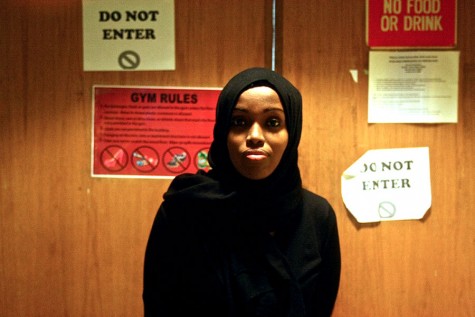
The most important thing that South students can do is be knowledgeable about hijab. Mohamed said “I think that the school should tell people [that] if you have a question about my headscarf, ask me!”

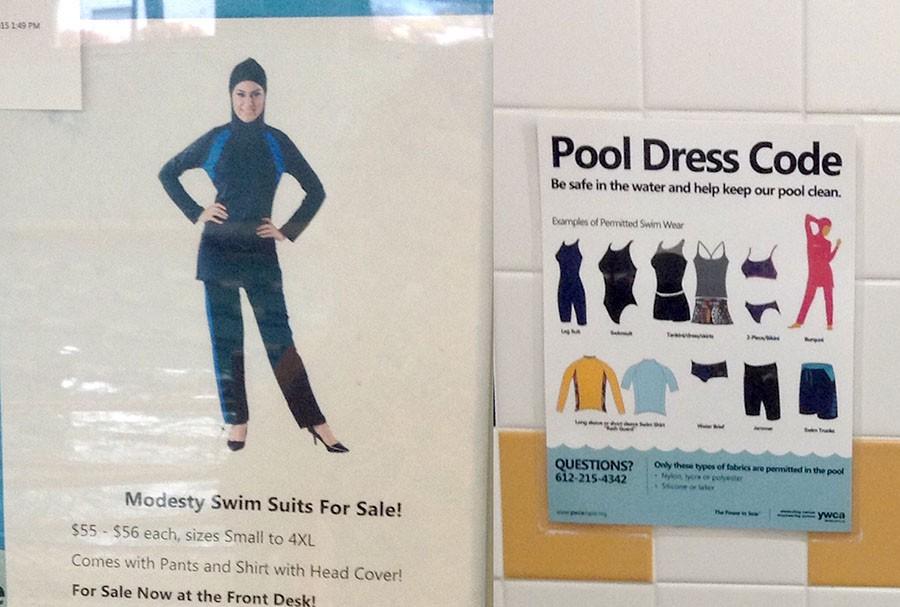


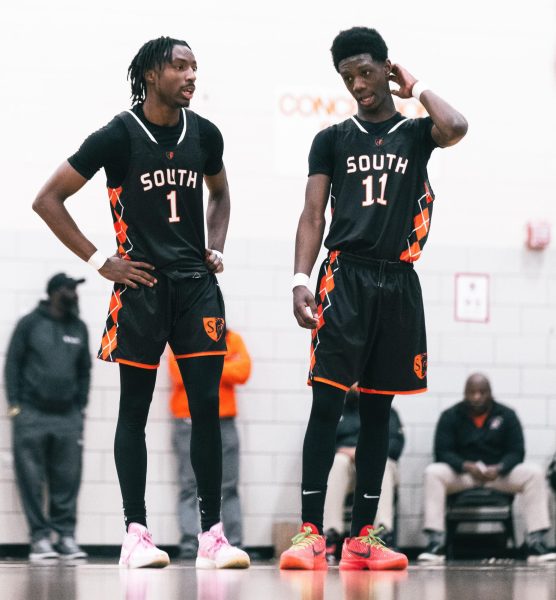

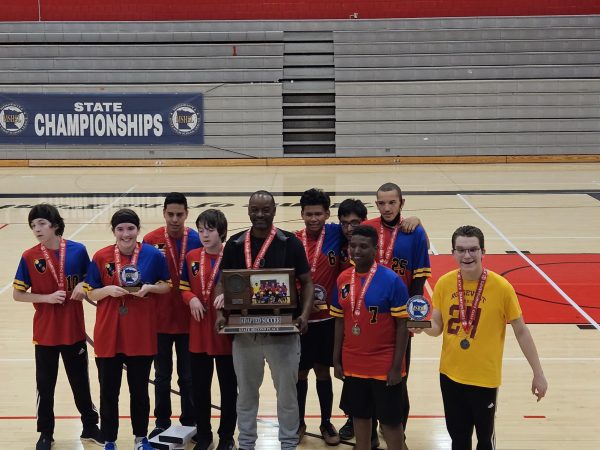

![Senior Ingrid Noren heads to school in February. She recommends winter biking, saying that “it’s better for your health [and] better for the planet.”](https://www.shsoutherner.net/wp-content/uploads/2023/03/Winter-biking-475x356.jpg)

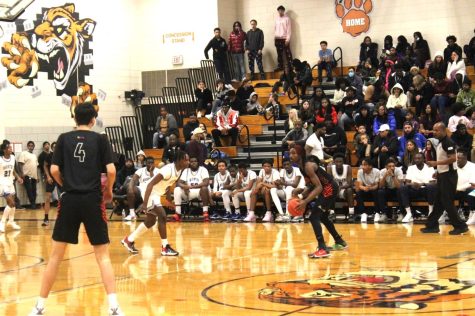
![Dance is affected by sexism, capitalism and semantics but that doesn’t change the fact that dance is an art; an influential art that is unlike anything else. “The amount of time, effort and commitment you have to put in to be a good dancer [is overlooked]...Everyone has to work really, really hard to get where they are.”](https://www.shsoutherner.net/wp-content/uploads/2022/11/dancevisual1-475x441.jpg)


Liz Powell • Nov 23, 2015 at 2:49 pm
Way to go Women; not everyone is comfortable in stripped off clothing. As a teen I wore a Ballet Leotard with elbow length sleeves to swim in; I had bad acne on my shoulders and back and this concealed it. We should all be allowed to dress how we feel is right for any activity, regardless of our age, shape, religion. What is important is that we can move freely and not be hampered by our clothes; which so many younger women today are finding ways to do while remaining within their own boundaries.